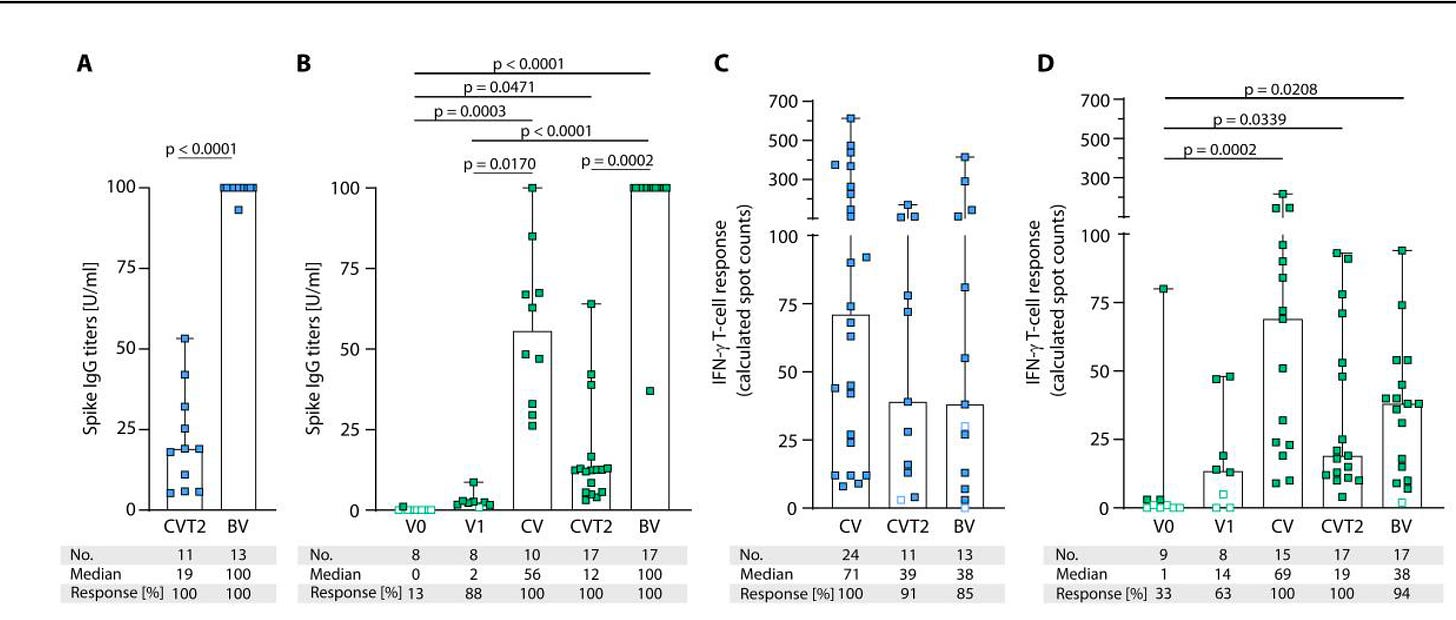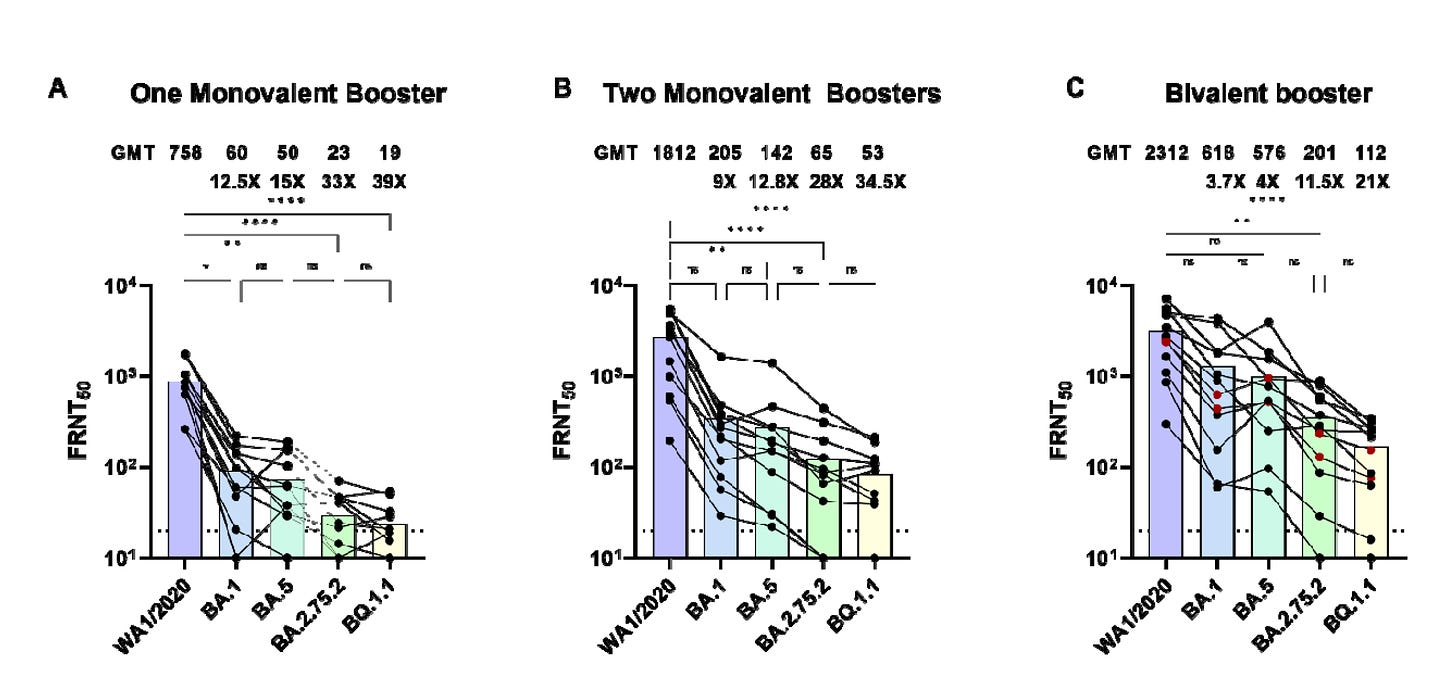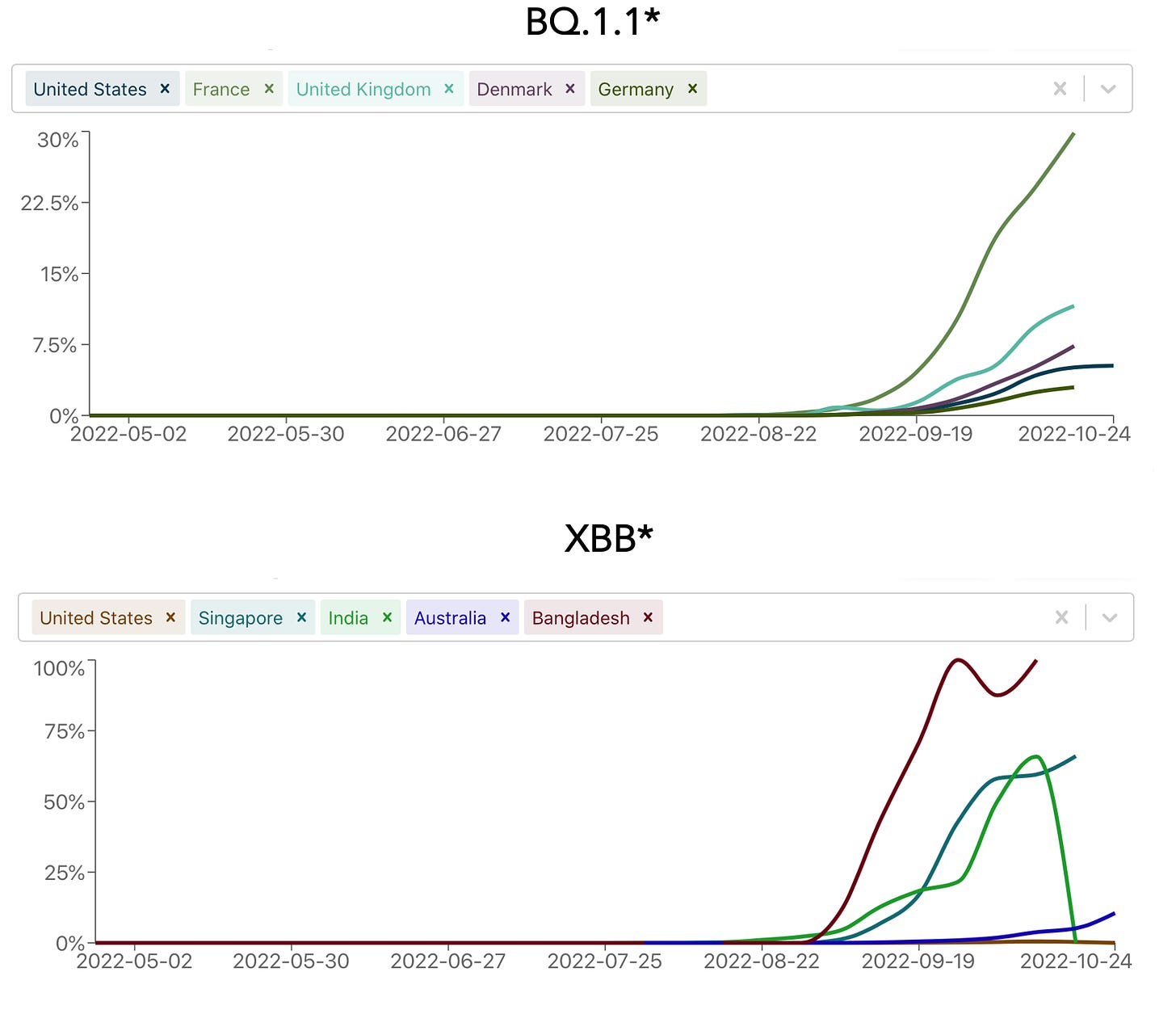NB: The is the 2nd daily/frequent brief pandemic update that I just initiated because of twitter’s instability
Two published papers today are of interest. And some very welcome good news on the bivalent booster shot.
What does a booster vaccine achieve?
A well regarded group from Germany’s University of Tubingen published a paper in Science Immunology comparing various vaccines and booster impact on neutralizing antibodies and spike-specific T-cells. Complete vaccination (CV) with any of 4 vaccines (Modena, Pfizer, J&J, Astra-Zeneca, and mixing of these) achieved durable T-cell responses at 6-month follow-up (CVT2). A booster vaccine (BV)’s main effect was for increasing antibodies to the spike rather than augmenting the T-cell response. That is, as the authors concluded: “T-cell responses are not markedly boosted by a third vaccination.”
Why is this important? We have known that the primary vaccination series leads to a CD4+ and CD8+ T-cell response that is fundamental to providing protection from severe disease. However, the waning of antibody immunity was well established since July 2021, along with a drop-off in protection against hospitalizations and deaths. Now we can see the tie in for the booster benefit by augmenting neutralizing antibodies without a strong effect on cellular immunity. While there are many other papers addressing this topic, some with larger samples than this one, it’s becoming clear that to tackle this virus, especially how it has evolved so extensively, having high levels of neutralizing antibodies is key, particularly for people of increased risk (advanced age, immunocompromised). So the current study helps us nail down the mechanism for what boosters accomplish and why they’re necessary—at least for now. As I’ve written previously, we can’t rely on boosters every 4-6 months as a long term viable strategy, so the findings also beg the efforts for next generation vaccines that are more durable, variant-proof, and block infections/spread (yes, nasal vaccines)—which boosters are not doing adequately.
How do Covid infections affect the gut microbiome?
The groups at NYU Langone and Yale combined for an important study in both mice and people in Nature Communications. In 96 patients (60 at NYU, 36 at Yale, sample numbers below are different than patient numbers) with Covid infections there was evidence of disruption of the gut microbiome (dysbiosis) with appearance of opportunistic infections, including some that were antibiotic resistant. Furthermore, blood culture testing indicated the potential liability for secondary infections—that is bloodstream infections (BSI). While the patients were hospitalized and some had received antibiotics, the controlled experiments in mice showed the altered permeability of the gut lining epithelial cells, underpinning of the ability for bacteria to enter the bloodstream. Another reason you don’t want to get Covid.
New on the Bivalent Booster
Now for the best news of the day, which is on the BA.5 bivalent booster, a reprint from Emory University that shows how well the bivalent held up to BQ.1. and BA.2.75.2, two of the most immune evasive new variants, compared with the original monovalent shot(s) via the live neutralization assay. This is the best data we have yet seen for the bivalent booster, since for the 2 earlier preprints by the Ho and Barouch labs, both did not show a big BA.5 neutralizing antibody response as was hoped. The prior studies used a pseudovirus assay whereas the Emory used live virus, likely a more accurate assessment. The BA.5 neutralization with bivalent was 4-fold the original booster, which is certainly better than 1.3 fold from the Barouch lab report. Importantly, now we have lab evidence that our defense against 2 of the worrisome variants with a growth advantage in the United States (especially BQ.1.1) should be bolstered with the new booster. You can see these variants are indeed more immune evasive (with less FRNT50 values) than the original strain (W1/2020), Omicron BA.1 and BA.5, but the antibody response looks a lot better with the bivalent than one or two original boosters, especially vs one). By the way, this finding ties in very well with #1. above. All the more reasons to get a booster!
Finally I’m on a daily global watch of the variants (BQ.1.1x, XBB.x) with very high levels of immune evasion, particularly right now in the countries below. These data are lagging about a week, but show the bellwether countries to keep an eye on for any noteworthy increase in hospitalizations or deaths. So far, things are stable, as I reviewed in more depth yesterday along with these new variants and their add ons.
That’s all for today. I hope a bit of optimism shines through. Thanks for reading.






